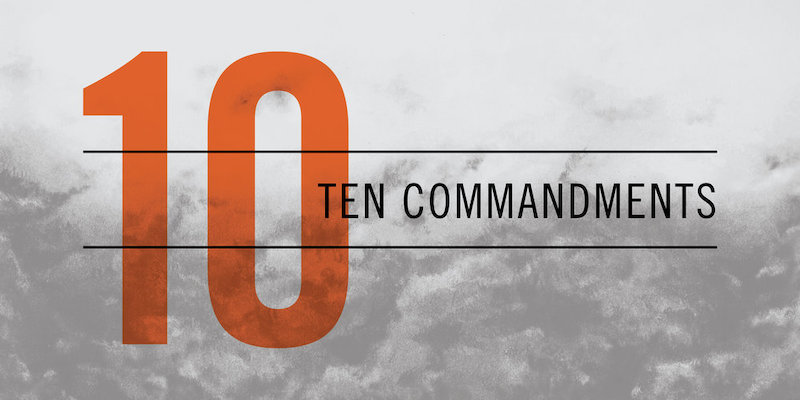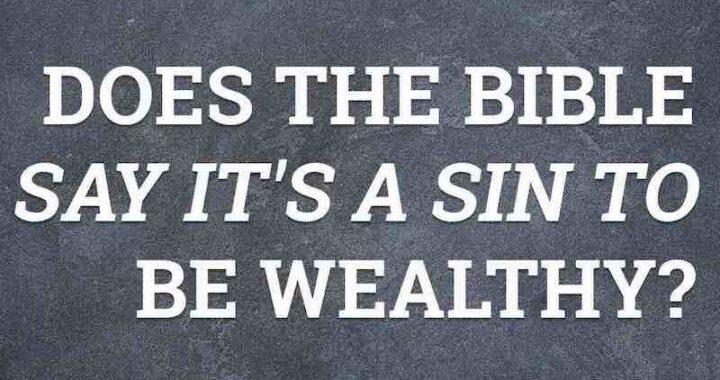Why did the rich young ruler walk away from Yeshua?
The four gospels of the New Testament are written in an extremely engaging manner. In an effort to accurately tell the story of Yeshua, the four gospel writers (inspired by the Holy Spirit) included numerous real-life accounts that Yeshua had with various individuals and groups of people during His years on this earth.
Each dialogue between Yeshua and His counterpart generally focused on a specific question or a specific spiritual truth. Often these dialogues did not include the names of the people who spoke with Yeshua, but rather, just some unique characteristic about them, for example: the woman at the well, the leper, the woman who was caught in the act of adultery, or the man born blind.
In one of the many dialogues that Yeshua engaged in, we read about a young man who had great wealth. We are never told his name, however, from the three parallel accounts in the gospels (Matt. 19. Mark 10. Luke 18), he has become famously known as “The Rich Young Ruler.”
The Rich Young Ruler
Yeshua tailored each response to His questioner as fit the need of the person to whom He was responding, and so it was with the rich young ruler. It is worth reviewing the full dialogue between Yeshua and the young man to properly understand the context:
A ruler questioned Him, saying, “Good Teacher, what shall I do to inherit eternal life?” And Yeshua said to him, “Why do you call Me good? No one is good except God alone. You know the commandments, ‘Do not commit adultery, Do not murder, Do not steal, Do not bear false witness, Honor your father and mother.’” And he said, “All these things I have kept from my youth.” When Yeshua heard this, He said to him, “One thing you still lack; sell all that you possess and distribute it to the poor, and you shall have treasure in heaven; and come, follow Me.” But when he had heard these things, he became very sad, for he was extremely rich. And Yeshua looked at him and said, “How hard it is for those who are wealthy to enter the kingdom of God! For it is easier for a camel to go through the eye of a needle than for a rich man to enter the kingdom of God.” They who heard it said, “Then who can be saved?” But He said, “The things that are impossible with people are possible with God.”
Peter said, “Behold, we have left our own homes and followed You.” And He said to them, “Truly I say to you, there is no one who has left house or wife or brothers or parents or children, for the sake of the kingdom of God, who will not receive many times as much at this time and in the age to come, eternal life.” – Luke 18:18-30
This particular young man had everything this world could offer: he had wealth and, as a ruler, he had power. This young Jewish man also wanted the promise of eternal life but in the end he refused Yeshua’s offer and went away sad because of his great wealth (Mark 10:22). Did wealth and riches keep him from eternal life?
What actually prevented the rich young ruler from inheriting eternal life? Is it a sin to be rich and have great wealth? Was there a particular commandment that the rich young ruler failed to keep?
Knowing God
As we seek to understand what hindered the rich young ruler from entering the kingdom of God, it is worth noting how Yeshua initially responded to him. Before replying to his actual question, Yeshua asked him “Why do you call Me good? No one is good except God alone.” (Luke 18:19) The rich young ruler had called Yeshua by a flattering title, “Good Teacher,” but Yeshua understood that it was no more than a flattering title.
The rich young ruler was very successful in life but his perspective of God was incomplete. When he approached Yeshua did he really believe that Yeshua is the Messiah, the Son of God? Yeshua appears to be indirectly telling the rich young ruler that if really believed in God and the goodness of God then he should have believed in Yeshua as the Son of God. This is the reason why Yeshua led the rich young ruler down the path of the commandments: to help him see that he really did not know God.
In answer to the rich young ruler’s question about how to inherit eternal life, Yeshua reminded him of several of the commandments. The rich young ruler claimed that he had kept all of these commandments from his youth. In the eyes of the rich young ruler, he was a good human being who was obeying all of the commandments.
Yeshua then went to the heart of the matter and replied: “One thing you still lack; sell all that you possess and distribute it to the poor, and you shall have treasure in heaven; and come, follow Me.” (Luke 18:22) The rich young ruler had done well to follow the rules and keep the commandments but his wealth had made him spiritually blind. Yeshua tried to help the young man and challenged him to fulfill the first commandment. What is the first commandment?

The Ten Commandments
We read the Ten Commandments for the first time in Exodus chapter twenty which is part of this week’s Torah Portion. Although the name “The Ten Commandments” is universally known for this unique set of ten ordinances from God, we do not actually see this title in Exodus chapter twenty, however, we do see something similar to this title in another place in the Torah:
He wrote on the tablets, like the former writing, the Ten Commandments which the LORD had spoken to you on the mountain from the midst of the fire on the day of the assembly; and the LORD gave them to me. – Deut. 10:4
In most English translations we see the title of “The Ten Commandments” as in the verse above and we read the same wording in Deuteronomy 4:13, however, the Hebrew in both occurrences reads עשרת הדברים – Aseret HaDevarim which is simply translated as The Ten Words. Ironically the word דבר – Devar is a very general word in the Hebrew language and, at the same time, it is used to speak of the very specific Ten Commandments which represent the covenant that God made with the nation of Israel. What is the first commandment?
The First Commandment
As we begin to read the Ten Words or Ten Commandments in Exodus chapter twenty we see that the first word or commandment that the LORD gave to the Israelites did not begin with the phrase “You shall not…,” but rather, a declaration of who God is:
Then God spoke all these words, saying, “I am the LORD your God, who brought you out of the land of Egypt, out of the house of slavery. You shall have no other gods before Me…” – Ex. 20:1-3
For whatever reason, Christian tradition generally ignores the affirmation of who God is and focuses on “You shall have no other gods before Me…” for commandment number one. The Jewish tradition, however, is to take this complete statement in context as the first commandment which declares that God is the Redeemer of His people from Egypt and emphasizes His unique name, יהוה – Adonai – the LORD, together with the command to not have any other gods before Him!
In taking verses two and three of Exodus 20 together as the first commandment we put the LORD God at the forefront of this commandment as well as all Ten Commandments. By starting the Ten Words with a clear declaration of who the One True God is, we have a positive focus of our faith and a positive reinforcement of why we should keep all of God’s Words and Commandments. We are to follow after Him and forsake the lies of this world!
The first commandment demands an exclusive relationship with the LORD God, the great “I Am,” without any competitors, therefore, God said: “You shall have no other gods before Me.” The rich young ruler had failed to observe the first of the Ten Words (Commandments)! The rich young rule chose his personal god of wealth and riches over the God of heaven and earth who owns it all. He chose the temporal pleasures of this world and forfeited eternal life with Yeshua in order to hold on to his worldly riches.
Yeshua correctly challenged the rich young ruler to keep the first commandment when He said the following to him: “One thing you still lack; sell all that you possess and distribute it to the poor, and you shall have treasure in heaven; and come, follow Me.” Yeshua invited the rich young ruler to forsake his other god of riches and follow the Anointed One of God, Yeshua Himself. The rich young ruler walked away unable to leave the gods of this world.
Are You Keeping The First Commandment?
Just like the rich young ruler, it is easy for us to think that our “religion” is in perfect order while at the same time we have our personal gods which we are unwilling to forsake. Riches and wealth are not evil in themselves, however, they can be a deceptive trap to steal our hearts and attention from worshipping and serving the LORD. God does not ask us to give Him part of our lives but everything. Yeshua stands before us today and invites us to forsake our personal gods and follow Him alone.
Shabbat Shalom!
If you enjoyed reading this article, share it today with friends! We also invite you to sign up for our weekly Torah Portion commentary on the sidebar to the right.
Help keep our weekly commentaries free and available to all. Click here to donate today:
*All Scripture take from NASB Copyright © 1960, 1962, 1963, 1968, 1971, 1972, 1973, 1975, 1977, 1995 by The Lockman Foundation
**The Hebrew name “Yeshua” is used in the biblical quotations in place of the English name “Jesus” to give emphasis to the meaning of this name, salvation. The word “Messiah” is also used in place of the word “Christ” to bring clarity to the office of Yeshua.



Hi Daniel, thanks for your inspiring weekly torah portion. In the Lutheran context the affirmation of who God is is included, also in the Catholic context – at least in the German Christian tradition. Maybe there are other traditions which ignore this essential part? In the Catholic tradition yet we`ve found a strong version: “I am the LORD your God” is the headline of each of the ten commandments. All the best, Daniel and Sara
Thank you for the comments Daniel and Sara,
Yes, you are right. The Catholic and Lutheran traditions are to include Exodus 20:2 but the majority of Protestant and Anglican traditions do not include verse two in the first commandment. They only begin with verse three. All variety of Bible translations contain all the verses, it is just a matter of separating the commandments and listing them as the Ten Commandments, or it is better said, the Ten Words!